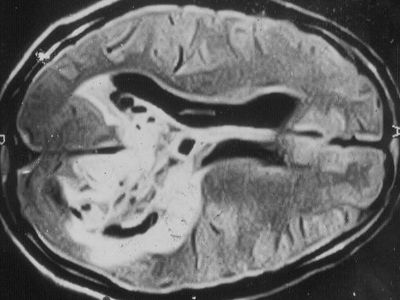
Epilepsy is a central nervous system disorder in which brain activity becomes abnormal that causes seizures or periods of unusual behavior, sensations and sometimes loss of awareness. Anyone can develop the condition. It affects both males and females of all races, ethnic backgrounds and ages.
What is Epilepsy?
Epilepsy is a chronic non-communicable disease of the brain that affects around 50 million people worldwide. It is characterized by recurrent seizures, which are brief episodes of involuntary movement that may involve a part of the body or the entire body and are sometimes accompanied by loss of consciousness and control of bowel or bladder function.
What are the Symptoms and Causes of Epilepsy?
The main symptom of epilepsy is recurring seizures. Your symptoms, on the other hand, vary depending on the type of seizure you have.
Seizure signs and symptoms include:

- Temporary loss of awareness or consciousness
- Blank stare or staring into space look
- Uncontrolled muscle movements, muscle jerking, loss of muscle tone
- Temporary confusion, slowed thinking, problems with talking and understanding
- Problems talking or understanding
- Changes in hearing, vision, taste, smell, feelings of numbness or tingling
- Upset stomach, waves of heat or cold, and goose bumps
- Psychic symptoms, including fear, dread, anxiety or déjà vu
- Lip-smacking, chewing motion, rubbing hands, or finger motions
- Faster heart rate and breathing
Most people with this condition tend to have the same type of seizure, so have similar symptoms with each seizure.
Most of the time, the cause of epilepsy is not known. However, known causes may include:
- Genetics. Epilepsy can run in families in some cases. Even though certain genes may contribute to the condition, scientists believe that other factors may also contribute. Seizures and abnormal brain signals are caused by certain epilepsies caused by abnormalities that affect brain cell communication.
- Brain infections. Infections can include brain abscess, meningitis, encephalitis, and neurocysticercosis.
- Immune disorders. Conditions that cause your immune system to attack brain cells can lead to epilepsy.
- Mesial temporal sclerosis. This scar forms in the inner part of your temporal lobe and can give rise to focal seizures.
- Head injuries. Head injuries can result from vehicular accidents, falls or head blows.
- Metabolic disorders. People with a metabolic condition can have epilepsy. Your healthcare provider can detect many of these disorders through genetic tests.
- Brain conditions and brain vessel abnormalities. Brain health issues that can cause epilepsy include brain tumors, strokes, dementia and abnormal blood vessels, such as arteriovenous malformations.
- Developmental disorders. Brain abnormalities are a common cause of epilepsy, particularly in people who cannot control their seizures with anti-seizure medications. It may result from birth abnormalities such as focal cortical dysplasia, polymicrogyria, and tuberous sclerosis. Epilepsy can also be caused by a wide range of other brain abnormalities.

What Are Some Treatments For Epilepsy?
Medication is usually the first step in treating epilepsy. Surgery or another treatment may be recommended if medications don’t work.
Medications:
Anti-seizure medications, also known as anti-epileptic medications, can prevent seizures in most people with the condition. Combining medications may help others reduce the frequency and intensity of their seizures. It can be difficult to find the right medication and dosage. The medication your doctor prescribes will depend on your condition, the frequency of seizures, your age, and other factors. To ensure the anti-epileptic medication will not interact with any other medications you may be taking, your doctor will review any other medications you are taking.
- Gabapentin – this drug is an anticonvulsant medication that works in the brain and the nervous system. It stabilizes the electrical activity in the brain and affects the way the nerves send messages to the brain.
Surgery:
When medications fail to provide sufficient control over seizures, surgery may be an option. With surgery, a surgeon removes the area of your brain that’s causing seizures. Doctors usually perform surgery when tests show that:
- The area in your brain to be operated on doesn’t interfere with vital functions such as speech, language, motor function, vision or hearing
- Your seizures originate in a small, well-defined area of your brain
Therapies:
- Vagus nerve stimulation
- Ketogenic diet
- Deep brain stimulation
- Responsive neurostimulation









